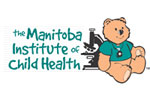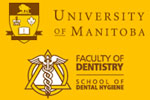“Oral Health and the Aboriginal Child: a Forum for community members, researchers and policy-makers” was held June 7 and 8, 2007 at the Manitoba Institute of Child Health in Winnipeg, Manitoba. The focus of this event was the oral health of young Aboriginal Canadians. While the majority of Canadian children experience little or no dental decay (dental caries) during early childhood, a shocking number of children still suffer extensive tooth decay. This disparity is most apparent in Aboriginal children from both urban and remote First Nations and Inuit communities.

This workshop was attended by 42 community members, researchers and policy-makers from across Canada who gathered with the goal of developing and improving national collaborations and relationships between and among child oral health researchers and Aboriginal communities; researchers and other researchers; and researchers, Aboriginal communities, and oral health policy decision makers. The event was supported by a number of organizations, universities, and companies including three institutes of the Canadian Institutes of Health Research: the Institute of Human Development, Child and Youth Health, the Institute of Musculoskeletal Health and Arthritis and the Institute of Aboriginal Peoples’ Health.
Some key components of the recommendations that evolved from the presentations and discussions of the Forum were:
- Disseminating the Proceedings in a variety of formats to a variety of key organizations and individuals.
- Establishing a “clearing house”, easily accessible to Aboriginal communities, cataloguing resources, information, protocols, data and “lessons learned” from previous research and oral health promotion projects (successful or not).
- Nurturing the relationships developed at this Forum by expanding the Steering Committee to enhance Aboriginal representation. The suggestion was for a follow-up meeting to be held in an Aboriginal community that would give an opportunity for Aboriginal people to share their stories about child oral health.
- Developing an Aboriginal Oral Health Research Network to champion an integrated and collaborative research environment for Aboriginal communities, researchers and policy-makers for trials and demonstrations projects with a goal of improving Aboriginal child oral health. Some basic considerations for the research network would be to listen to communities, integrate traditional knowledge, consider oral health in terms of overall child health, tackle the social determinants of health, involve Aboriginal groups often overlooked in research, (urban Aboriginals, Métis), and be committed to qualitative research and participatory action research.
- Building the capacity of Aboriginal communities for oral health research by, for example, establishing a mentoring program for young Aboriginal scholars to promote more interest in child and community oral health research.
- Highlight the importance of oral health to overall child health in all research undertakings.
This knowledge transfer site is an outcome of this workshop.



